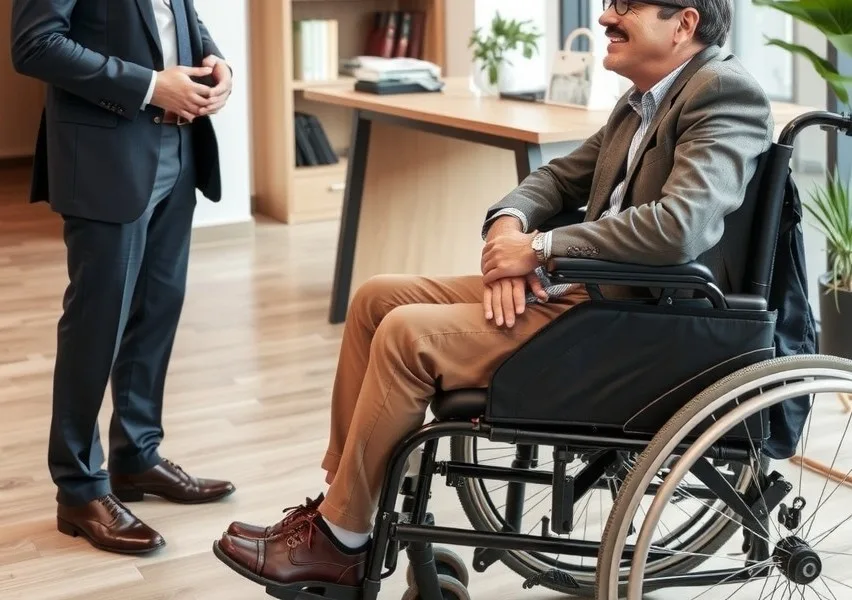Most of the time, the biggest concern after a car accident is minor damage to the vehicle and an inconvenient disruption of your day. In some cases, however, a car accident results in serious, life-changing injuries. If that has happened to you or someone you love, you likely have many questions and need answers fast.
In this article, we will consider compensation for catastrophic spine and brain injuries. First, we will look at what these involve, as well as the medical costs and other effects caused by these injuries. Finally, we will learn how personal injury lawyers can assess long-term needs for fast and fair compensation.

What Are Catastrophic Brain and Spine Injuries?
The phrase “catastrophic injuries" refers to serious injuries that have a life-changing effect on a person’s life. This can include injuries such as amputations or severe burns. In many cases, injuries to the spine and brain are often viewed as catastrophic because they can require a long recovery or even cause a long-term or permanent disability.
Traumatic brain injuries
Traumatic brain injuries (TBIs) can range from mild to severe and affect a person’s brain function. The symptoms can be temporary, lasting a few weeks or months, or they can be permanent. TBIs are often categorized as either “open” (an object enters the skull) or “closed” (the head is struck with force).
Although some TBIs are considered “mild,” this does not mean that they are not serious or catastrophic injuries. Even a mild TBI can have long-term effects that drastically change a person’s life.
Common symptoms of a mild or moderate TBI, such as a concussion, include:
- Insomnia
- Dizziness or vertigo
- Nausea or vomiting
- Sensitivity to light
- Memory problems
- Mood changes
- Cognitive difficulties
- Feeling depressed and/or anxious
- Changes in vision or sense of smell
Sometimes, symptoms of a TBI do not appear right away or may get worse with time. Severe TBIs can result in a prolonged state of unconsciousness and permanent disability. These severe injuries often require specialized, ongoing medical care.
Spinal cord injuries
The spinal cord connects the brain with the rest of the body. Spinal cord damage means that signals aren’t able to pass through properly. This can affect a person’s ability to feel, move, or control parts of his body. These changes can be temporary or permanent, depending on the type and extent of the catastrophic injury.
Spinal cord injuries can cause:
- Full paralysis
- Partial paralysis
- Pain or stinging
- Breathing problems
- Loss of sexual function
- Loss of bowel and/or bladder control
- Loss of sensitivity to touch, heat, and cold
In addition to the direct result of a spinal cord injury, there are often secondary risks related to these injuries. Since a person’s movements are often limited, there is an increased risk of developing blood clots or heart disease, which can be life-threatening. Also, if the neck and chest are affected, a person may have a higher risk of developing other lung conditions or infections.
How do Catastrophic Brain and Spine Injuries Impact Injury Victims?
Since brain and spinal injuries are serious injuries, they often require extensive medical treatment and impact a person’s quality of life and daily activities. In some cases, such injuries result in a permanent disability.
Medical treatment
After a catastrophic injury, especially those affecting the spine or brain, medical treatment is often required immediately following the injury (ambulatory and emergency care) and for many more weeks or months (physical therapy and rehabilitation).
Initially, medical treatment will be focused on treating the initial trauma as fast as possible to save the person’s life, such as:
- Identifying and stopping bleeding
- Stabilizing the patient’s vital signs
- Diagnosing the severity of the injury
- Preventing further damage or injury
- Reducing swelling and pressure on the brain
Depending on the severity of the catastrophic injury, emergency care after an accident may require a lengthy hospital stay. Medical providers try to act as fast as possible to improve the patient’s chance of a better recovery.
Generally, rehabilitation and ongoing care is the longest and most costly part of medical treatment after a catastrophic brain or spine injury. This can be done through inpatient care in a hospital or treatment center, or through outpatient and home care.
Rehabilitation often requires many different medical professionals who work together to provide a comprehensive treatment program. The medical team likely includes specialized doctors, nurses, physical therapists, respiratory therapists, psychologists, and social workers.
Rehabilitation treatment works to help the patient in many ways. They can strengthen or regain muscle and cognitive function, improve fine motor skills, and learn how to accomplish daily tasks. In some cases, physical therapy is required to relearn basic skills like walking or talking. Generally speaking, the faster a person begins treatment, the faster he or she can regain certain functions and begin recovery.
Quality of life
Catastrophic spine and brain injuries can have a major effect on a person’s quality of life. A person may need help with daily activities like bathing, cooking, cleaning, and home maintenance.
Depending on the nature of the injuries, accessibility and mobility features such as ramps or lifts may need to be installed in the home. Vehicle modifications may also be required.
Although some may recover faster than others, most people who have suffered brain injuries often find it difficult or even impossible to return to work. Even those who are eventually able to return to work often suffer lost earning capacity.
A study conducted by the Brain Injury Association of America looked at 186 adults who suffered a mild to severe brain injury. Although all of them were employed at the time of their injury, only 35 percent were employed 1 year after the injury, and 42 percent after 3 or 4 years.
In addition to the physical pain and effects of a catastrophic injury, there is also an emotional and psychological effect. A person may suffer from Post-traumatic stress disorder (PTSD) or emotional distress stemming from the trauma of the accident that caused his or her injuries. He or she may also experience depression or anxiety due to changed circumstances.
Often, a person who has suffered a catastrophic injury benefits from help from mental health professionals. This may include therapy or other treatments to improve his or her mental and emotional health after an accident.
How Are Long-term Needs Assessed for Compensation?
When assessing compensation after a brain or spine injury, there are many factors that must be considered. Of course, it is important that compensation includes all current and past losses related to the injury. This should include compensation for all medical expenses and lost wages up to the time of the settlement. However, in order for compensation to be fair and complete, it should also cover future and long-term medical costs and lost wages.
Expert testimony is invaluable to prepare and support catastrophic injury claims. Medical experts will be able to offer insight to assess the long-term effects of catastrophic injuries, including both current and future medical expenses and needs.
When assessing long-term compensation, there are many questions that need to be considered, including:
- Is his or her condition stable? Is it likely to improve or deteriorate in the future?
- Does he or she require assistance with daily tasks? What are the limitations?
- What type of medical support is available? How long will it be necessary?
Of course, a person who has suffered a catastrophic injury likely wants to pursue compensation as fast as possible. However, the truth is that these questions are likely unanswerable in the first few days or weeks after the injury. In order to fight for maximum compensation, it is important that the full scope of a person’s condition is understood.
Especially for brain and spine injuries, it can take time for a person to achieve what is referred to as “Maximum Medical Improvement.” This doesn’t mean they are healed, but instead means that their condition is not likely to drastically change. This can reduce the risk of future medical bills being higher than initially anticipated and the settlement being insufficient.
Our Team Can Help With Your Catastrophic Injury Case
After suffering a catastrophic injury, your time and energy should be spent on your health and recovery. Unfortunately, in addition to the immense physical and emotional stress, personal injury claims often cause substantial financial stress as well.
If your personal injury was caused by someone else’s negligence, you deserve full compensation. Your compensation should cover not only your immediate medical costs and lost wages, but also your future medical costs and long-term needs, emotional distress, and pain and suffering.
Catastrophic injury cases can be complex and overwhelming. You need a legal team on your side that can fight for you to recover fast and fair compensation.
At Gould Injury Law, our fast-working personal injury lawyers are ready to do what it takes to represent our clients and give them the help and support they need. Call us today at 888-WIN-FAST or fill out our online form to schedule a free consultation.
